Vietnam stands out as the only Southeast Asian nation with both extensive experience and strong ties to the three major powers of China, the US, and Russia, according to Kavi Chongkittavorn. Chongkittavorn, a senior fellow at the Institute of Security and International Studies at Chulalongkorn University, Thailand, and former special assistant to the ASEAN Secretary-General (1995-1996), shared his perspective on Vietnam's achievements over the past 80 years with VnExpress.
From its initially challenging steps toward normalizing relations with major powers and joining regional and international organizations, Vietnam has made remarkable progress, earning increasing respect on the world stage.
Chongkittavorn pointed out Vietnam's continuous efforts to upgrade relations with key partners both within and beyond the region, its active contributions to regional and international organizations, and its maintenance of positive relations with all major powers, including all five permanent members of the UN Security Council.
He describes Vietnam's "bamboo diplomacy" as the driving force behind its navigation through the complexities of an increasingly fragmented world, balancing the competing influences of major powers and leveraging them for robust development.
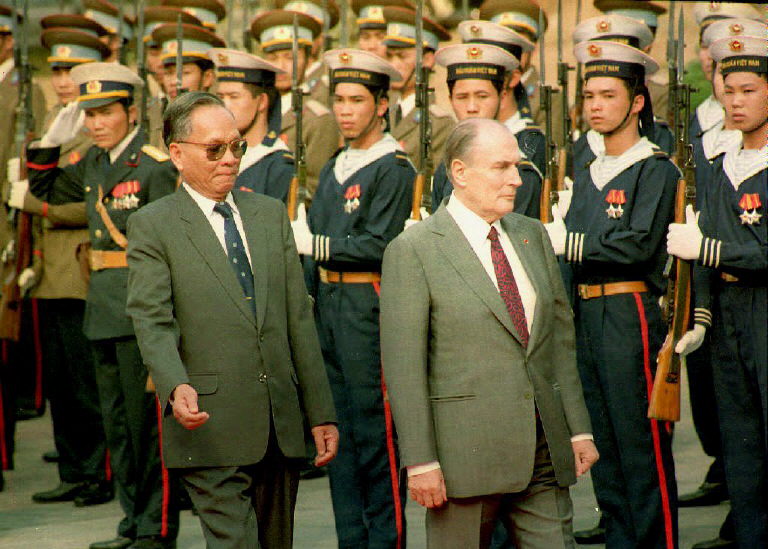 |
Thai scholar Kavi Chongkittavorn speaks at the ASEAN Business and Investment Summit in Indonesia in 9/2023. Photo: *GPRTV* |
In 2/1993, French President Francois Mitterrand became the first Western leader to visit Vietnam since 1975. The visit took place as Vietnam was actively breaking through international isolation, normalizing relations with major powers under the motto of "wanting to be friends with all countries in the international community".
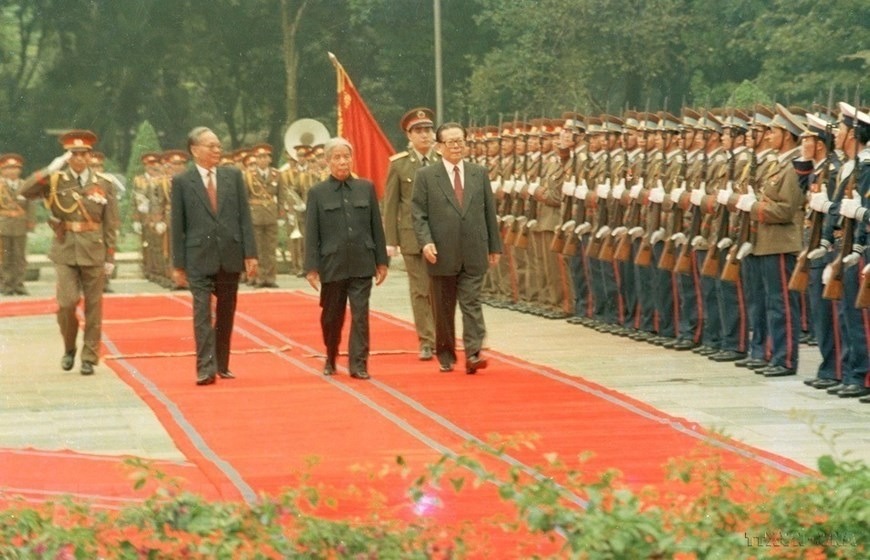 |
General Secretary To Lam speaks at the military parade on the morning of 2/9 at Ba Dinh Square. Photo: *TTXVN* |
In 11/1994, Chinese General Secretary and President Jiang Zemin visited Vietnam, three years after the two countries normalized relations. This first visit by a Chinese Communist Party General Secretary was hailed as "a momentous event in bilateral relations," elevating the friendly cooperative relationship between Vietnam and China to new heights and broader scope.
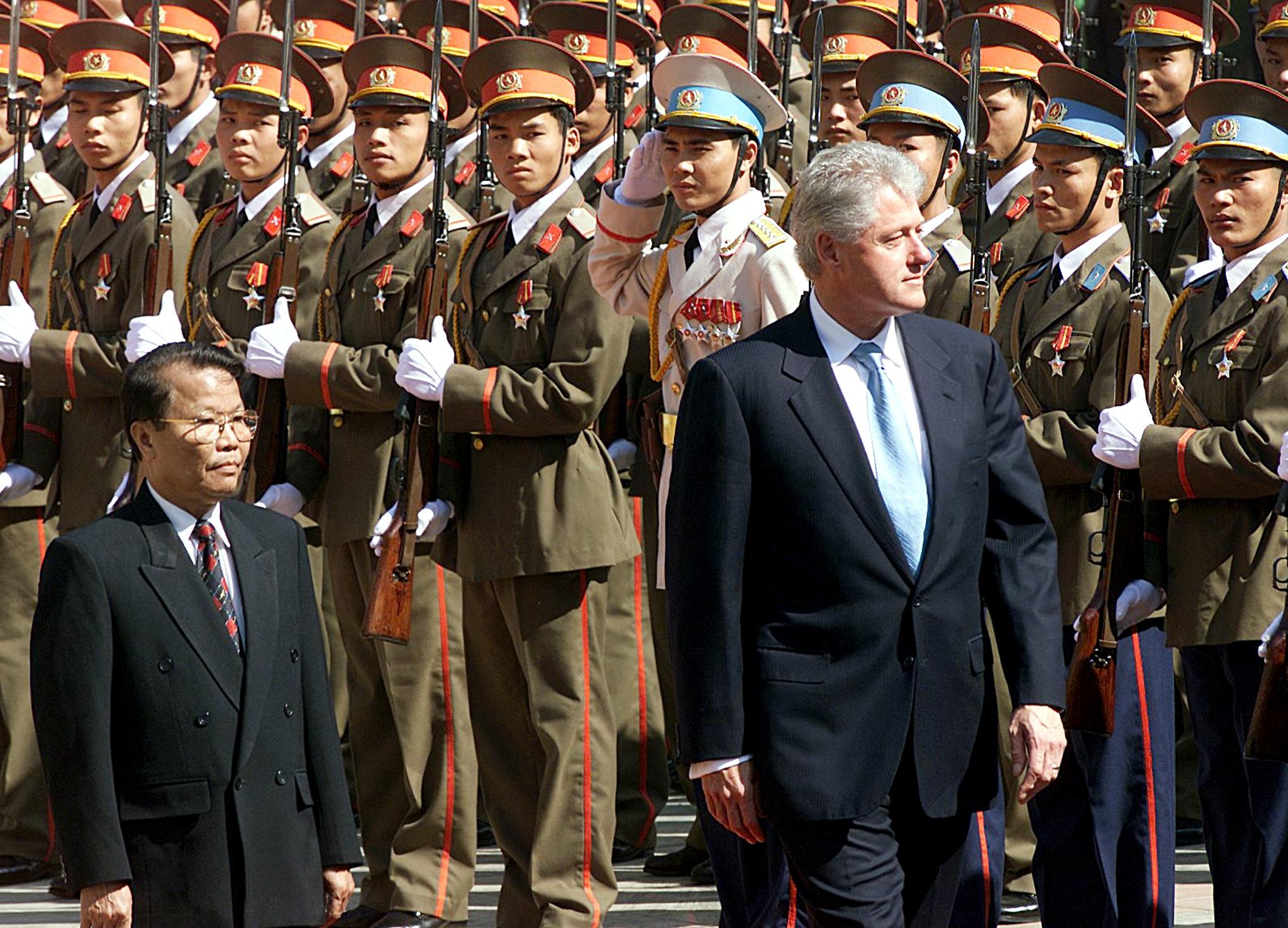 |
President Bill Clinton's visit to Vietnam in 11/2000 marked the first by a US president since the war. Clinton had previously lifted the US trade embargo against Vietnam in 2/1994, normalized relations in 7/1995, and signed a bilateral trade agreement in 2000. After leaving the White House, he returned to Vietnam four more times in 2006, 2010, 2014, and 2015.
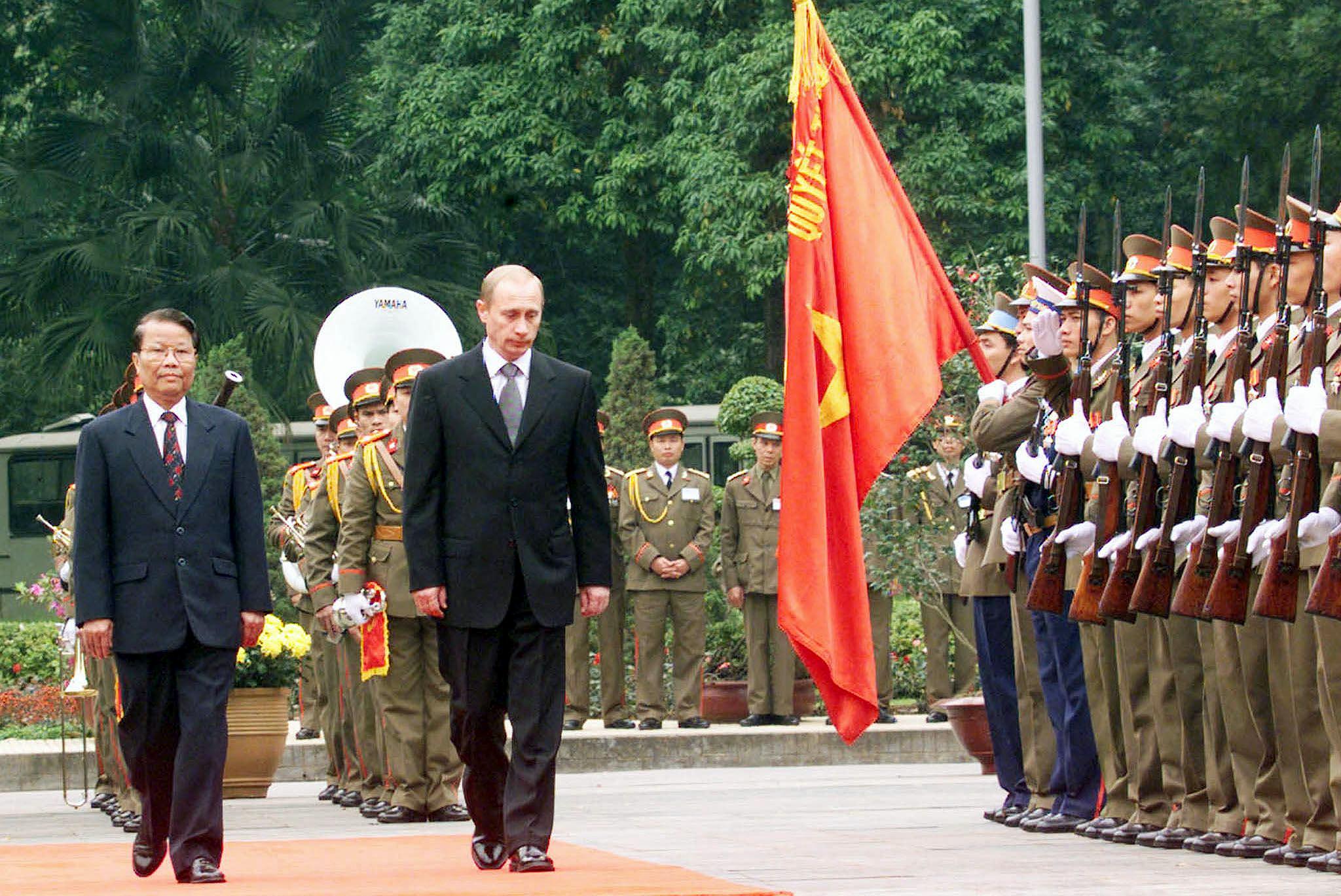 |
On 28/2/2001, Russian President Vladimir Putin made his first visit to Vietnam since taking office to chart the course for bilateral relations. Putin and Vietnamese President Tran Duc Luong signed a joint declaration elevating the relationship to a strategic partnership. Putin affirmed Russia's view of Vietnam as a strategic partner in Southeast Asia, pledging continued and strengthened cooperation across various sectors.
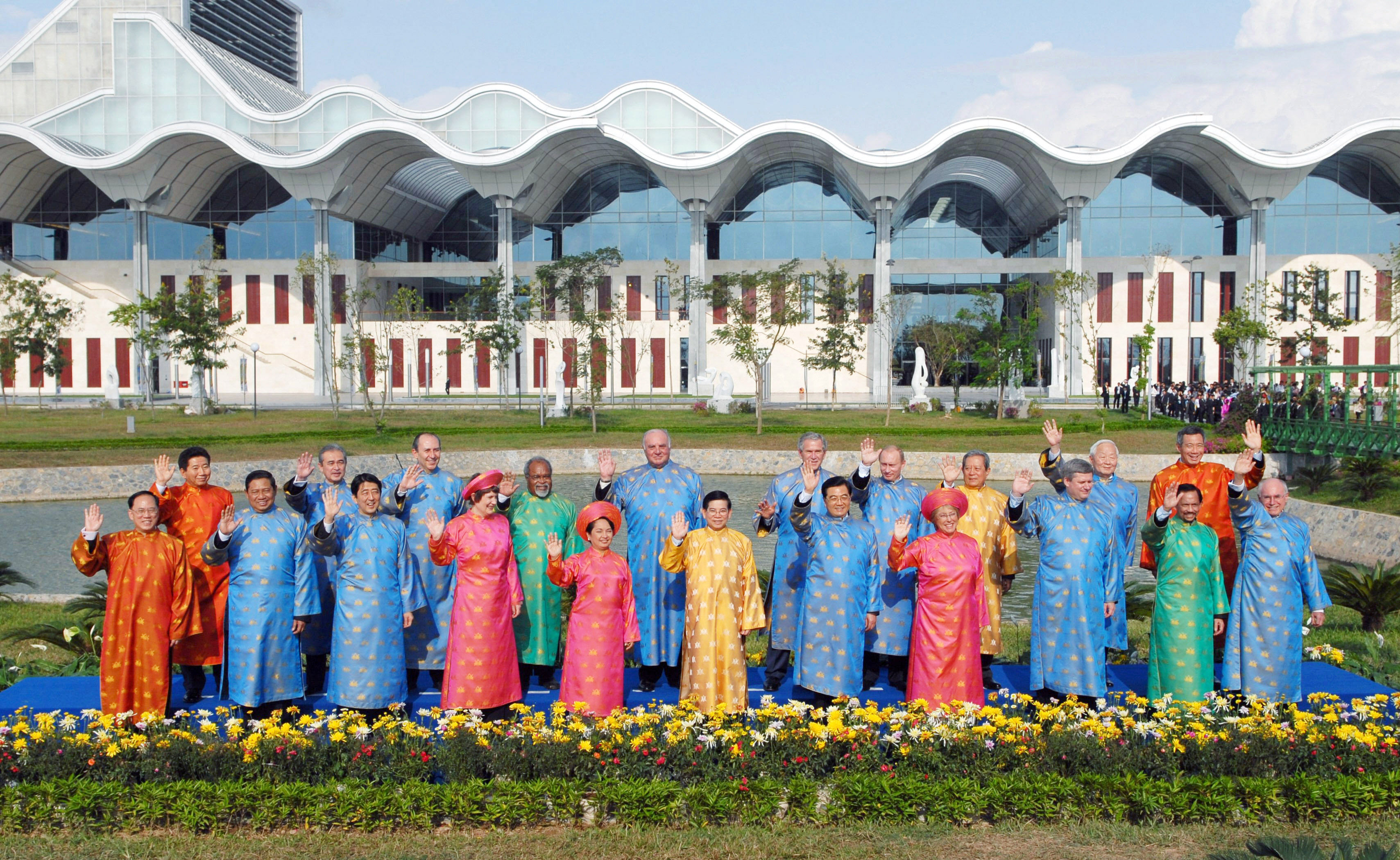 |
In 11/2006, Vietnam hosted the APEC summit for the first time, welcoming leaders from Asia-Pacific economies. The success of APEC 2006 affirmed Vietnam's proactive international integration policy and enhanced its international prestige and standing. It also contributed to Vietnam's accession to the World Trade Organization (WTO) after over a decade of negotiations and prompted the US to grant Vietnam permanent normal trade relations status.
The late General Secretary Nguyen Phu Trong characterized the nation's foreign policy as "Vietnamese bamboo diplomacy," rooted in strength, resilience, and flexibility. This approach has enabled Vietnam to respond to rapid and complex global and regional changes while achieving its foreign policy objectives.
Once isolated, Vietnam now has diplomatic relations with 194 countries and has established a network of strategic and comprehensive partnerships with 38 countries. It is also an active member of over 70 international organizations.
Chongkittavorn believes that through its flexible yet firm diplomatic principles, Vietnam is becoming a "game changer in contemporary geopolitics." He also praised Vietnam as a "model representative" for the entire ASEAN region due to its rapid economic growth and robust reform efforts to enhance efficiency, transparency, and good governance.
He noted Vietnam's strong economy, fueled by numerous extensive free trade agreements signed worldwide. "With its policy stability and consistency, along with market-oriented strategies, Vietnam has become a magnet in the region, attracting foreign investment to a degree that even its ASEAN peers are somewhat envious," he assessed.
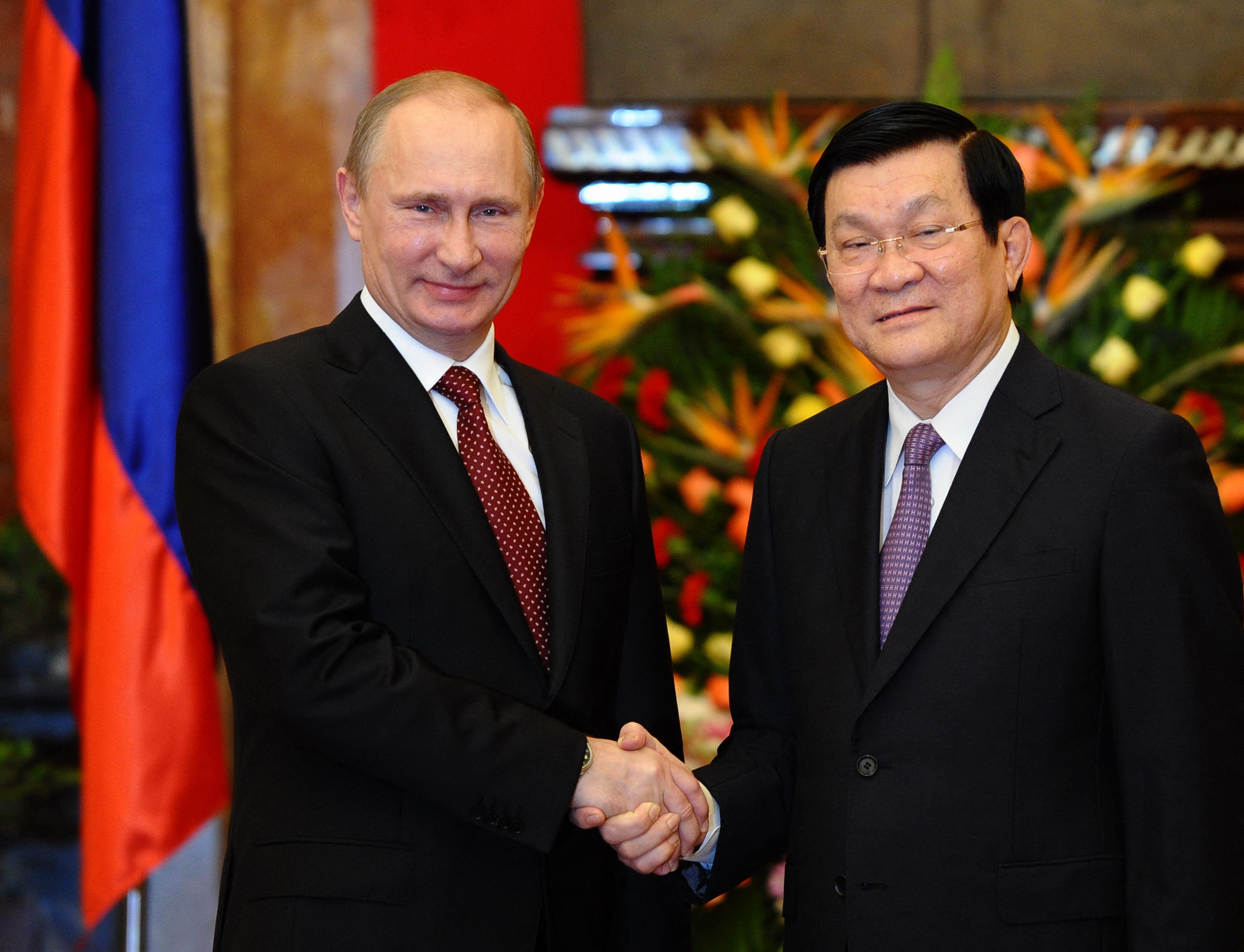 |
Murray Hiebert, senior associate at the Center for Strategic and International Studies (CSIS) in Washington and head of research at Bower Asia, agrees. He notes that Vietnam's proactive and multifaceted foreign policy has been well-received globally, even surprising many countries.
Hiebert observed that few countries engage in foreign affairs as actively as Vietnam. He recounted how other national representatives often express bewilderment at the extent of Vietnam's connections on Capitol Hill and within US government agencies.
"I just tell them: I don't know either, but I have to say Vietnam is very dynamic," Hiebert responded. "While others wait for the sun to shine on them, Vietnamese diplomats are out there, going everywhere, meeting everyone."
He believes Vietnam has been proactive in building and expanding relationships, effectively balancing risks, and maintaining positive relations with all parties, despite fluctuations in relations between major powers.
As a US correspondent based in Hanoi in the early 1990s, Hiebert witnessed Vietnam's initial steps toward breaking through international isolation and embargoes to integrate with the world. He observes that Vietnam has effectively leveraged both its unique strengths and the opportunities arising from its reform and integration process to develop its economy and elevate its international standing.
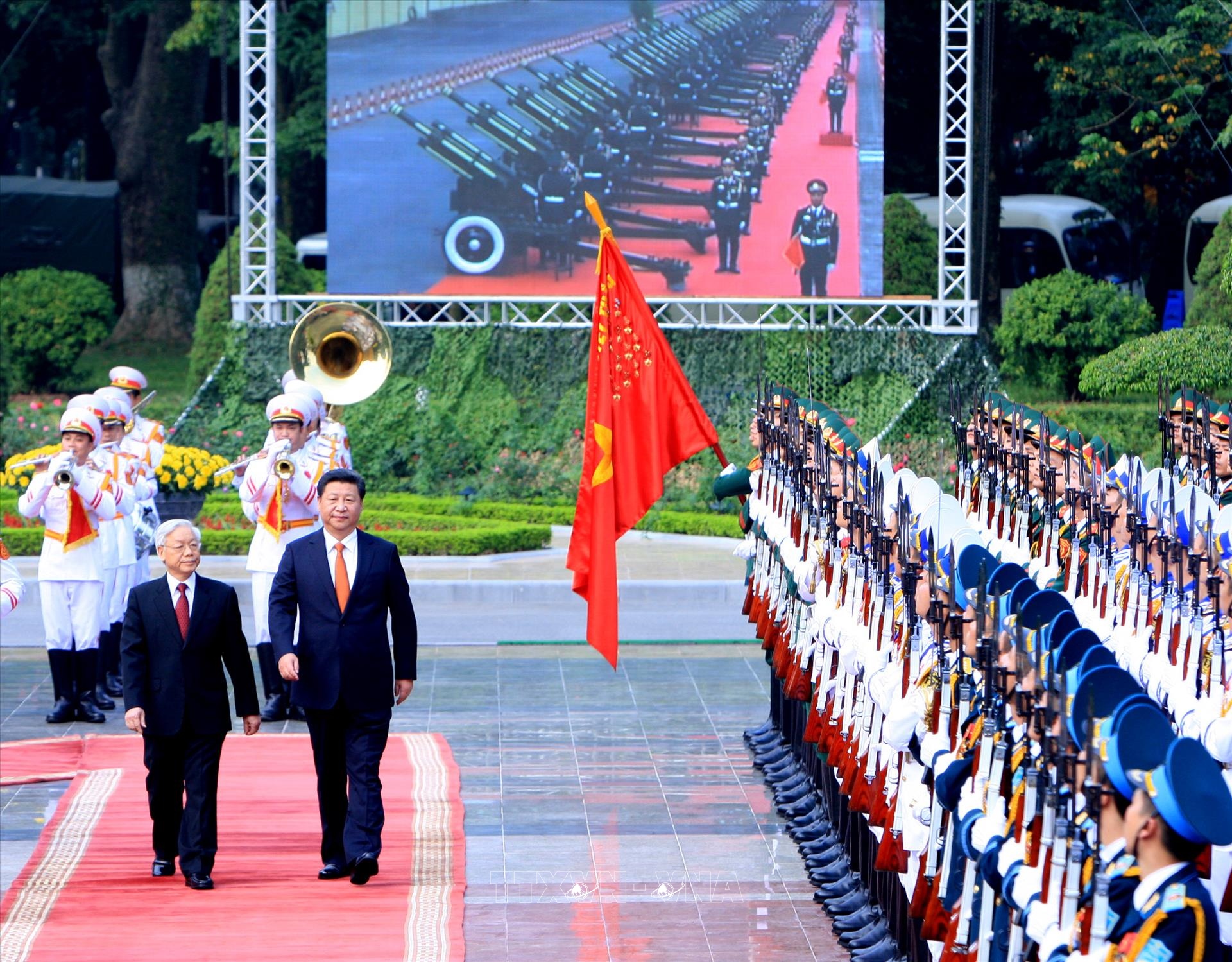 |
In 11/2013, Russian President Vladimir Putin made his third visit to Vietnam, demonstrating his commitment to furthering the Comprehensive Strategic Partnership established in 2012. The visit fostered cooperation in various sectors and showcased continued coordination and mutual support in international and regional forums.
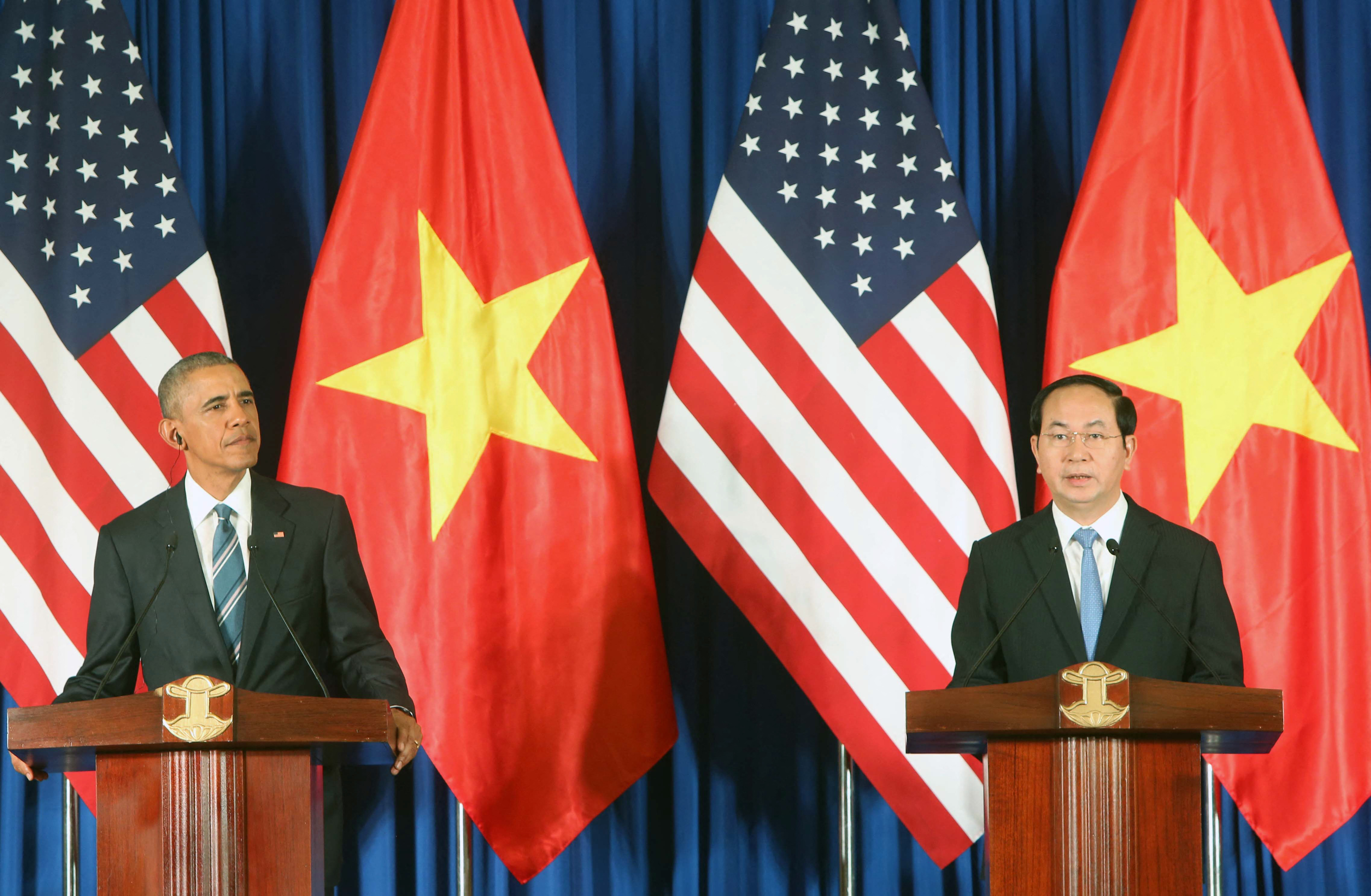 |
In 11/2015, Vietnam welcomed Chinese General Secretary and President Xi Jinping's first visit in his new capacity, coinciding with the 65th anniversary of diplomatic relations. A joint statement affirmed the visit's contribution to strengthening the traditional friendship and comprehensive strategic cooperative partnership established in 2008, promoting peace, stability, and development in the region and the world.
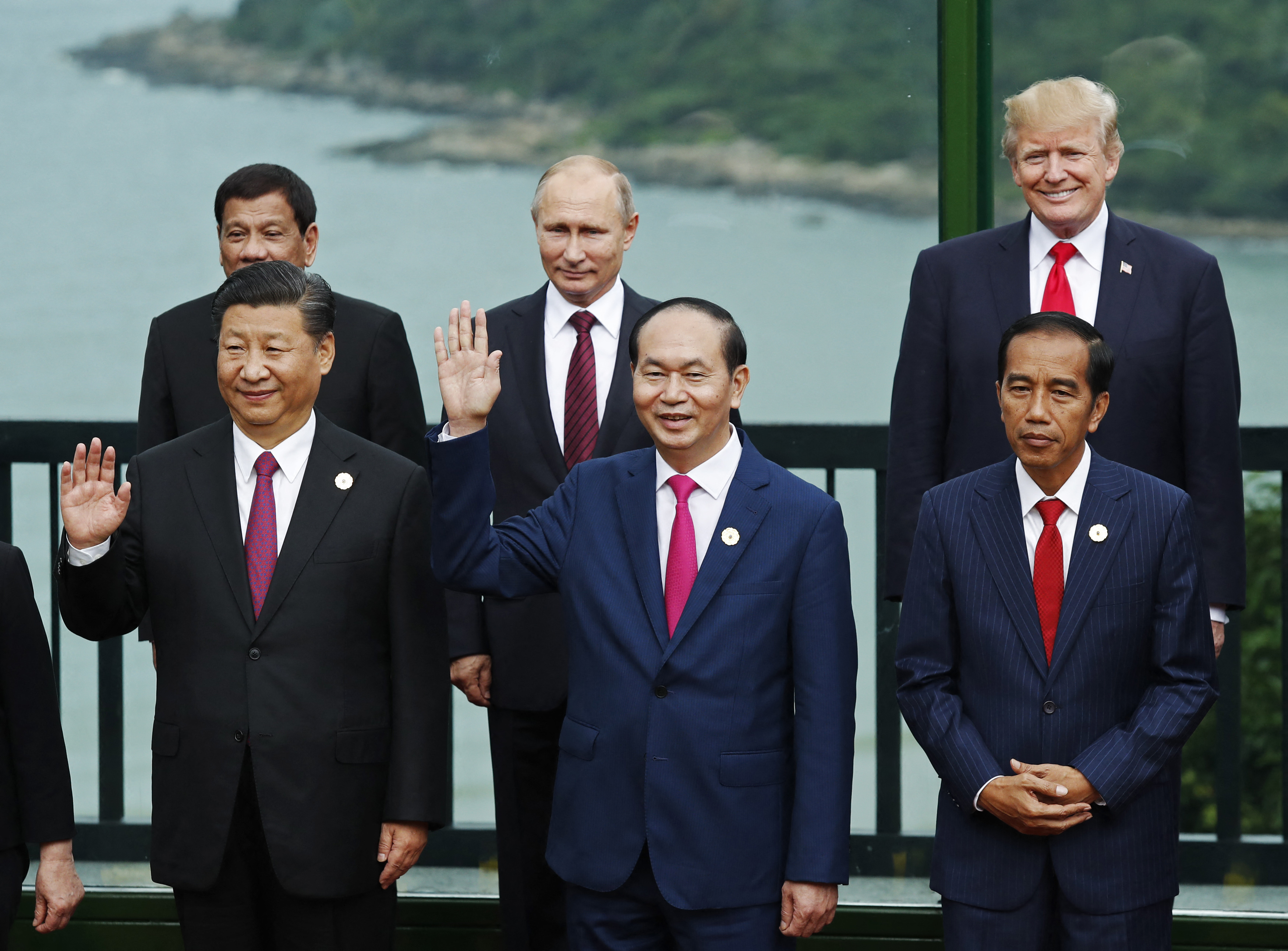 |
In 5/2016, President Barack Obama visited Hanoi, the third consecutive US president to do so. This visit reinforced the Comprehensive Partnership established in 2013. Obama announced the complete lifting of the lethal arms embargo against Vietnam. In 9/2016, Indian Prime Minister Narendra Modi made an official visit to Vietnam, and the two countries agreed to elevate their relationship to a Comprehensive Strategic Partnership.
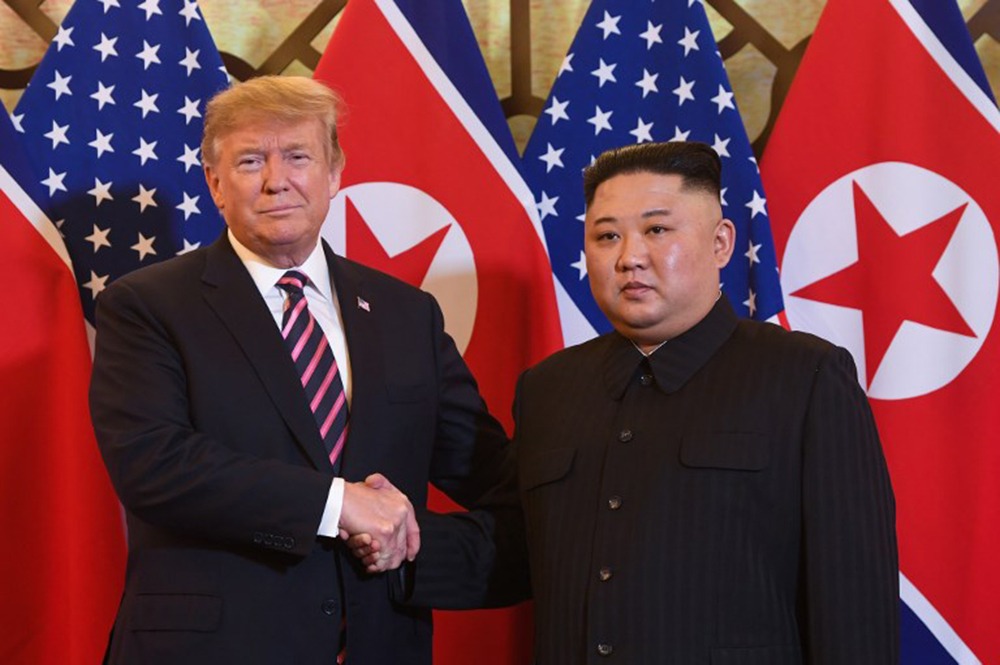 |
In 11/2017, Vietnam hosted APEC for the second time, welcoming leaders from Asia-Pacific economies. The successful organization of this event during a turbulent year further solidified Vietnam's international standing, advancing its influence and power. Leaders from Canada, Chile, the US, and China made state visits to Vietnam, with Hanoi and Ottawa upgrading their relationship to a Comprehensive Partnership.
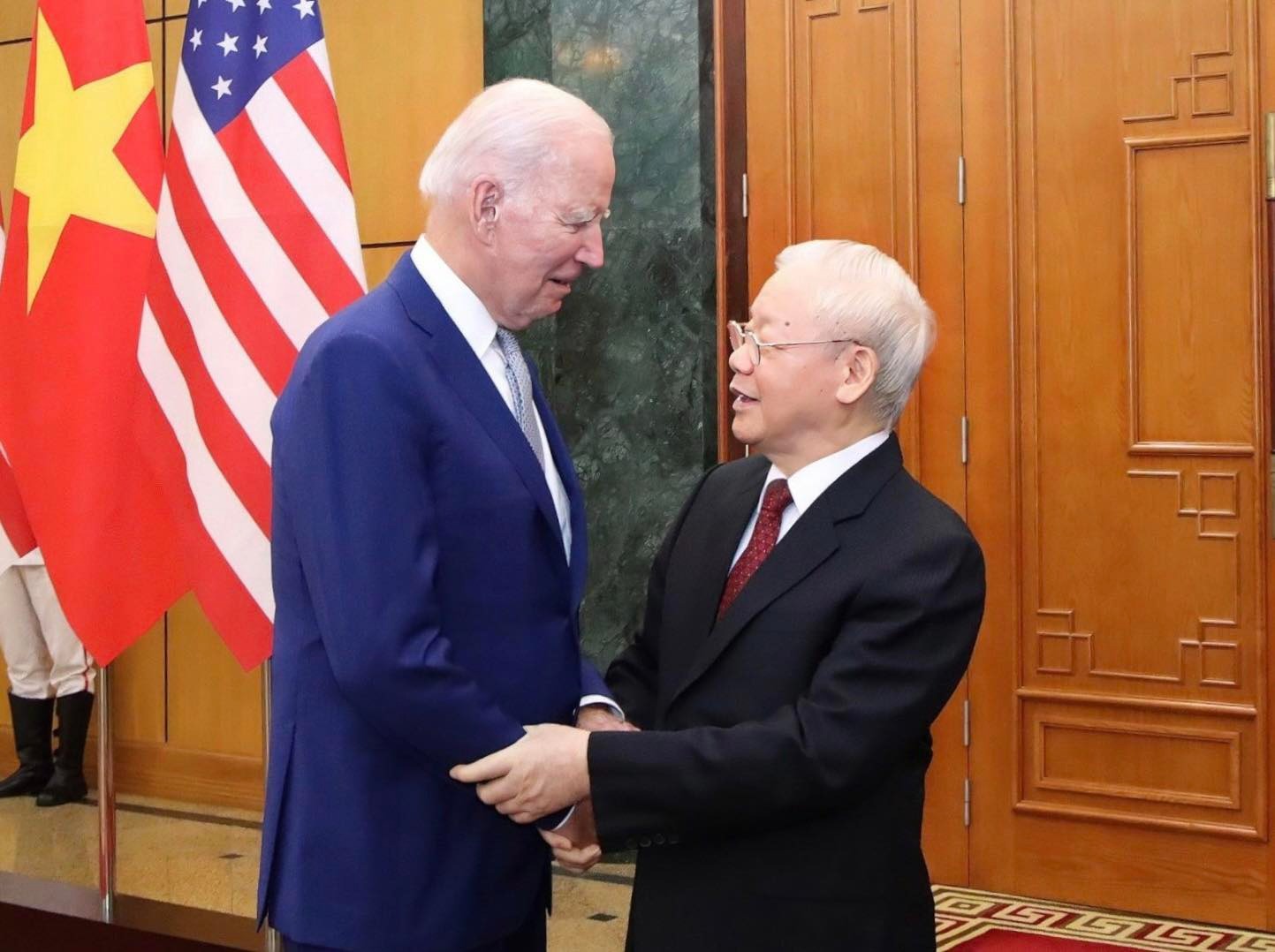 |
In 2/2019, Vietnam hosted the second US-North Korea summit. This event showcased Vietnam as a safe, neutral, and experienced host for major diplomatic activities, contributing to dialogue for world peace. North Korean leader Kim Jong-un made an official visit to Vietnam, the first by a North Korean leader in 55 years.
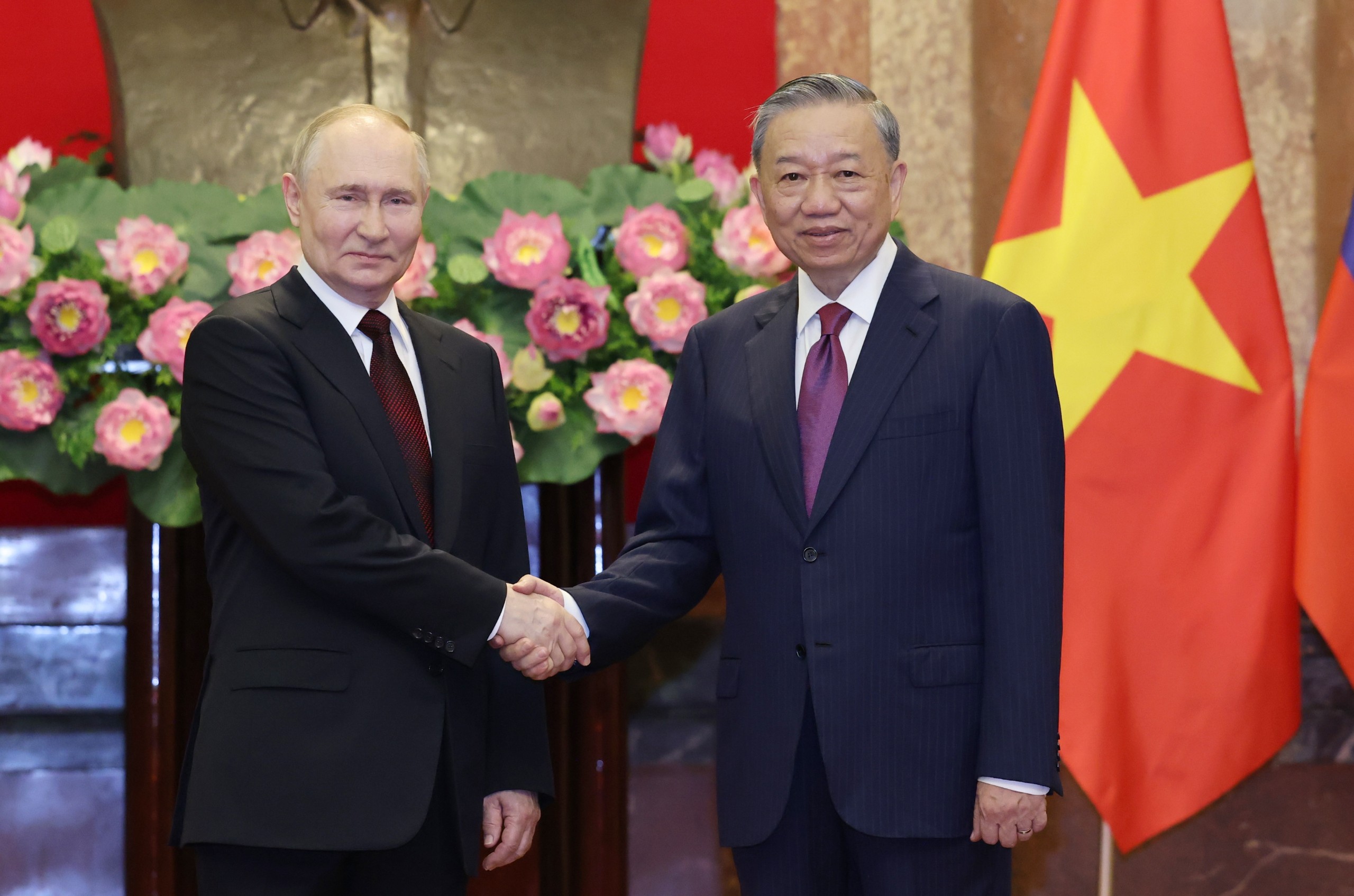 |
In 9/2023, President Joe Biden visited Vietnam, the fifth consecutive US leader to do so. General Secretary Nguyen Phu Trong and President Biden issued a joint statement elevating the US-Vietnam relationship to a Comprehensive Strategic Partnership for peace, cooperation, and sustainable development. In 12/2023, Chinese General Secretary and President Xi Jinping made his third visit to Vietnam as China's leader, enhancing the Vietnam-China relationship in the new era and promoting peace, stability, and development in the region and the world.
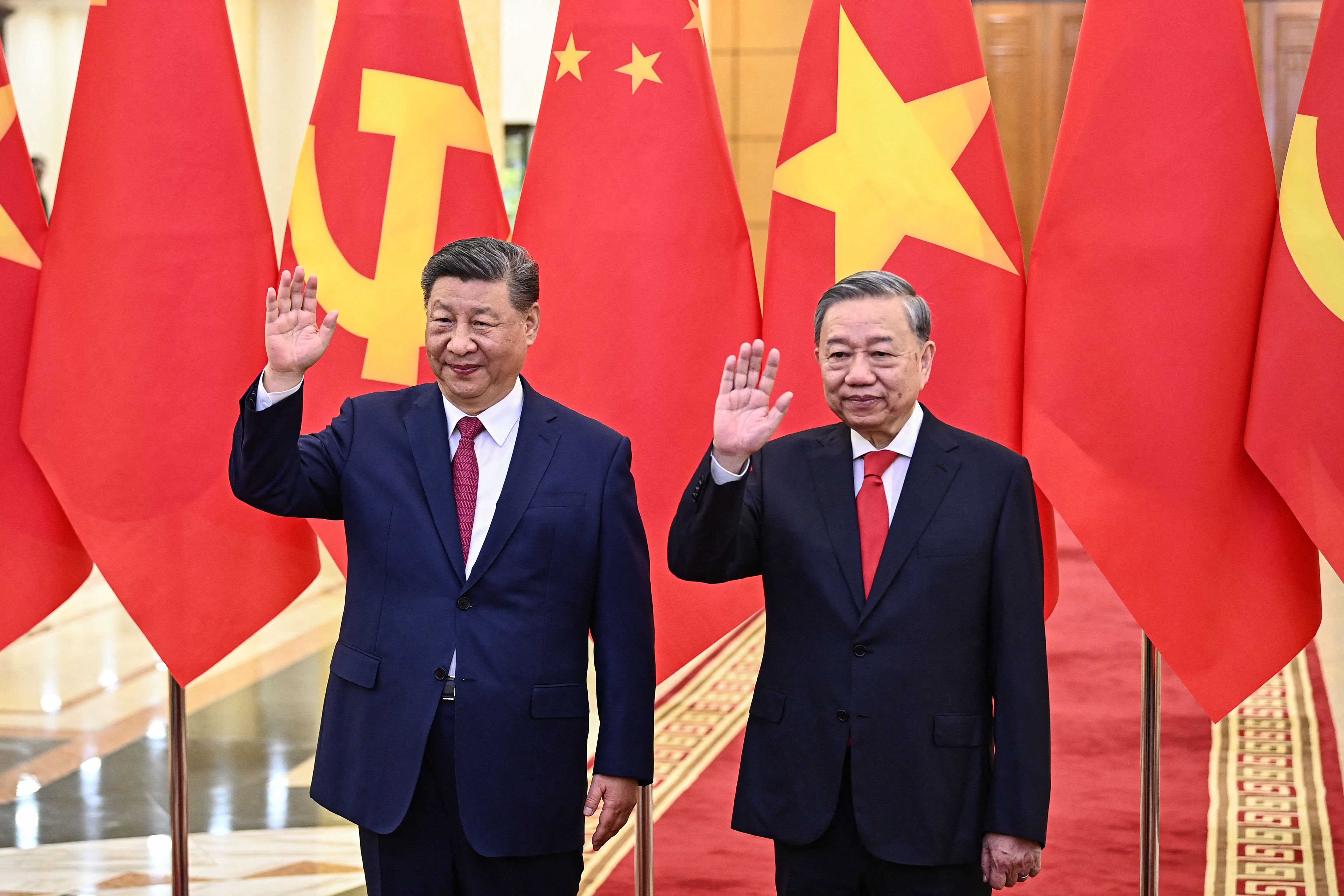 |
In 6/2024, Russian President Vladimir Putin returned to Vietnam for his fourth visit as Russia's leader, following visits in 2001, 2006, and 2013. Putin's visit was seen as an opportunity to further deepen the Vietnam-Russia Comprehensive Strategic Partnership across all sectors and elevate it in the new context.
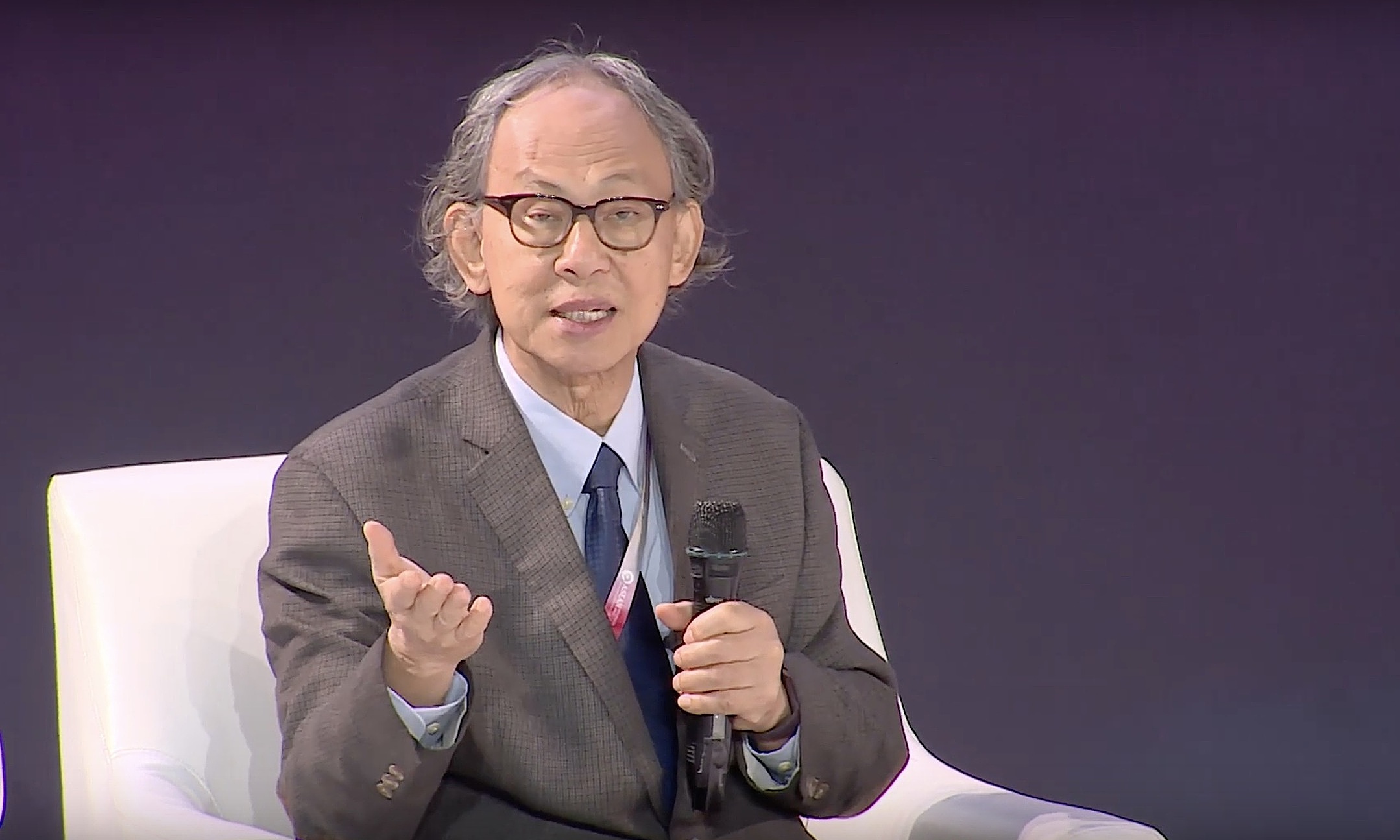 |
In 2025, Vietnam continued to welcome numerous world leaders, including New Zealand Prime Minister Christopher Luxon, Singaporean Prime Minister Lawrence Wong, Chinese General Secretary and President Xi Jinping, Japanese Prime Minister Shigeru Ishiba, French President Emmanuel Macron, and Thai Prime Minister Paetongtarn Shinawatra. Wong's visit came just two weeks after Vietnam and Singapore established a Comprehensive Strategic Partnership. This also marked a new high in relations between Vietnam and New Zealand, and Thailand.
Hiebert believes Vietnam seized the opportunity to attract investment and trade when it first opened its doors, successfully persuading partners to recognize its development potential and its prospects as a key economic player regionally and internationally. He also emphasized Vietnam's strategic location as a "crossroads" between the Indian and Pacific Oceans, through which 30% of global trade passes.
The proactive outreach by the Vietnamese government and businesses to seek partners demonstrates an open mindset and willingness to befriend all nations, building international trust in Vietnam.
"This mindset has changed everything dramatically, making Vietnam a helpful diplomatic player in the eyes of many countries," Hiebert commented.
Vietnam has established economic and trade relations with over 230 countries and territories, signed and implemented 17 free trade agreements (FTAs), including many new-generation FTAs, and is pursuing negotiations with other partners. Thanks to its active economic diplomacy, Vietnam has risen to become one of the world's top 32 economies in terms of GDP, and among the top 20 countries in trade and foreign investment attraction.
In 5, the Politburo issued Resolution 59 on proactive and extensive international integration, identifying international integration as both "crucial and constant" and a key driver for the country's entry into a new era.
With Vietnam's new standing, international integration is no longer just about being a latecomer, participating, and joining, but about building, shaping, and leading cooperative frameworks suited to the country's new conditions and capabilities.
Both Chongkittavorn and Hiebert agree that Vietnam is actively promoting its role as a "builder, shaper, and leader," a role that is being positively received by other countries.
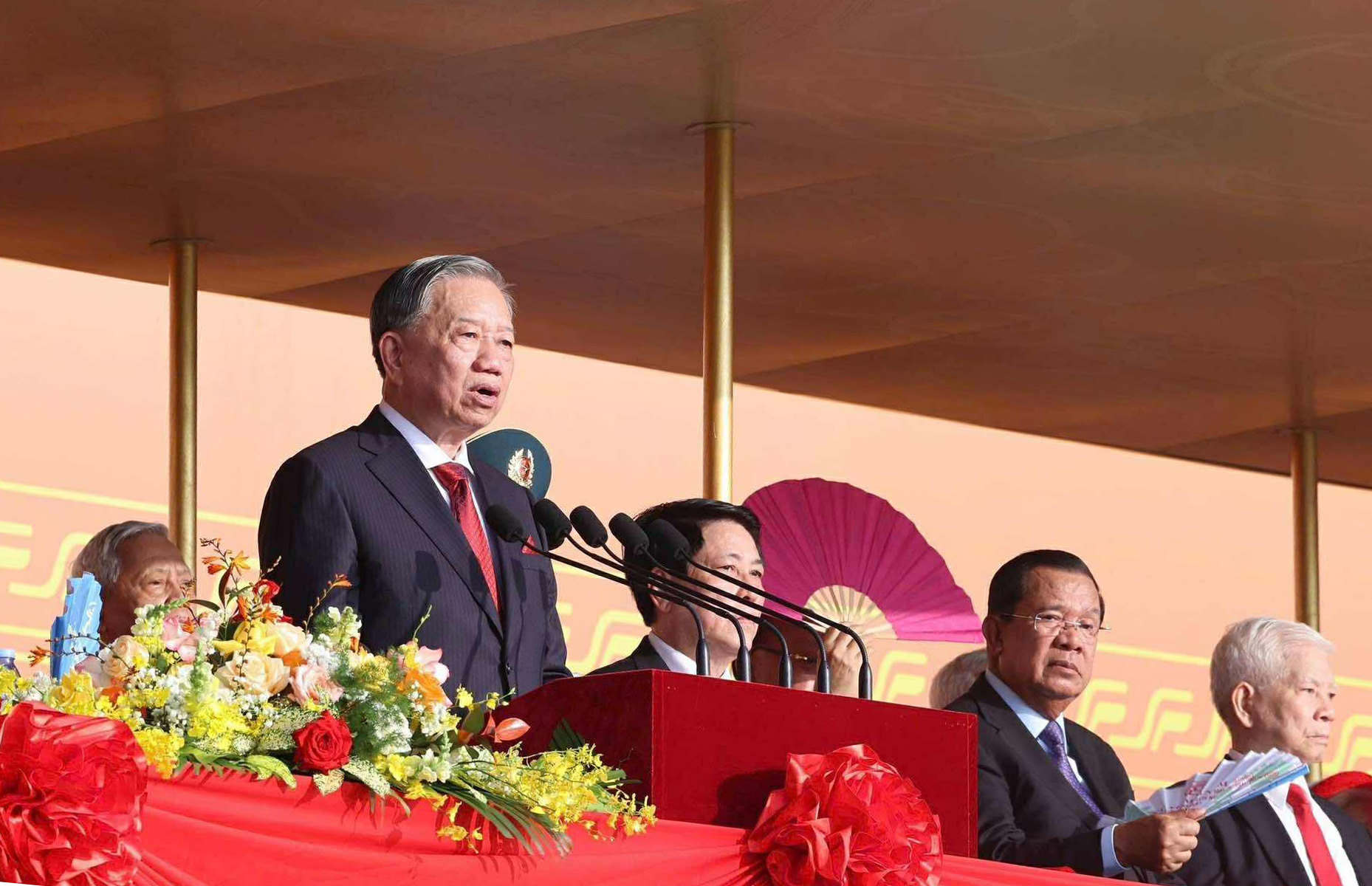 |
Lucio Blanco Pitlo III, a research fellow at the Asia-Pacific Pathways to Progress Foundation in the Philippines, believes that having endured heavy losses from war, Vietnam understands and cherishes peace. It has persistently pursued an independent foreign policy focused on domestic economic development.
"Political stability, long-term orientation, and policy consistency are Vietnam's outstanding advantages. Investors always look for stability, low production costs, and a government that actively supports business and promotes international trade—factors that Vietnam fully meets," Pitlo said.
In a commentary last month, Chongkittavorn described Vietnam as a "new champion" of economic integration and strategic autonomy, a leading nation shaping the future architecture of Southeast Asia.
"Vietnam initially sought to join ASEAN to pave the way for regional and broader economic integration. But after learning and absorbing the 'ASEAN Way,' Vietnam has become a highly effective advocate for ASEAN-led frameworks that benefit both national and regional interests. Vietnam's economic achievements within ASEAN are the most compelling evidence of your efforts," he further explained to VnExpress.
Speaking at the military parade on the morning of 2/9 at Ba Dinh Square, General Secretary To Lam stated that Vietnam has transformed from a colony into an independent, unified, modern, and deeply integrated nation with a growing international presence. The task of protecting independence, sovereignty, and territorial integrity; maintaining security and order for rapid and sustainable development; and improving people's lives "is both a call to action and President Ho Chi Minh's testament."
"The Party aims for Vietnam to become a strong, prosperous, and happy nation by 2045, the 100th anniversary of its founding—this is the national aspiration and a pledge of honor before history," the General Secretary emphasized.
Thanh Danh












